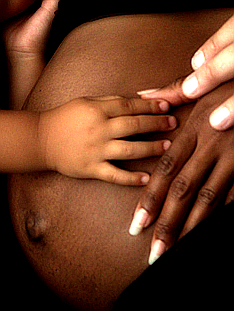Pregnancy test to spot risk of complication
 Australian researchers have developed the world’s first screening test to find a woman’s risk of developing common pregnancy complications.
Australian researchers have developed the world’s first screening test to find a woman’s risk of developing common pregnancy complications.
Researchers at the University of Adelaide have developed algorithms that combine subtle variations in DNA sequences for placental development with clinical, socioeconomic, lifestyle and family history data, to predict a woman’s risk of having one of the four major pregnancy complications.
The new screening test could be used in early pregnancy to allow clinicians to initiate treatments for women at risk earlier, helping to prevent or reduce the severity of the sometimes deadly complications.
“On average, 25 per cent of first pregnancies in Australia are affected by one of the four major complications: preeclampsia, preterm birth, intrauterine growth restriction and gestational diabetes,” researcher Professor Claire Roberts says.
“The screening test identifies a woman’s risk for pregnancy complications and what those complications may be, which allows for earlier intervention and treatment. For example, if it is identified in early pregnancy that a woman is at risk of developing preeclampsia, low dose aspirin before 16 weeks’ gestation could delay the onset of the condition or prevent it completely,” she said.
Professor Roberts says early trials of the screening test have been highly successful.
“The algorithms have been developed in over 3,200 pregnant women in Adelaide and Auckland (New Zealand) and successfully identify each woman’s risk of developing one of the four major pregnancy complications,” Professor Roberts said.
“The next step is to test women right across Australia and commercialise the algorithms so that they can be offered to pregnant women by clinicians from all over the world.”








 Print
Print